#writing life
Text
Crafting Sad Scenes: Writing Tears and Emotional Depth
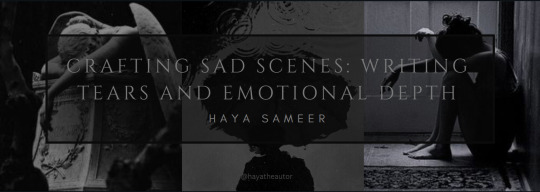
Creating authentic emotions is vital for immersive storytelling, which is why I decided to make this series on how to write different emotions. After exploring rage, it's now time to delve into sadness!
When it comes to portraying sadness, delving into various aspects of your character's behaviour and environment can deepen the emotional impact. Here's a guide on how to evoke sadness in your writing using different elements:
Facial Expressions
Downcast Eyes and Furrowed Brow: Describe how their eyes lower and brows crease, reflecting inner sorrow or distress.
Quivering Lips or Trembling Chin: Note the subtle quivers in their lips or chin, indicating emotional vulnerability or the effort to hold back tears.
Pained or Distant Gaze: Highlight a gaze that's distant, unfocused, or filled with inner turmoil, showing their emotional detachment or deep sadness.
Tear-Streaked or Reddened Eyes: Mention tear tracks or reddened eyes, portraying recent or suppressed crying, enhancing the visual impact of their sadness.
Hollow Cheeks and Sunken Eyes: Describe physical changes like hollow cheeks or sunken eyes, reflecting fatigue, despair, or prolonged emotional distress.
Body Language and Gestures
Slumped Shoulders and Hunched Posture: Show their dejected stance with slumped shoulders and a hunched posture, conveying a sense of heaviness or defeat.
Fidgeting or Clasping Hands: Detail how they fidget nervously or clasp their hands tightly, indicating inner turmoil or a need for comfort.
Absentminded Touching of Face or Hair: Mention absentminded gestures like touching their face or running fingers through their hair, reflecting introspection or sadness.
Slow or Listless Movements: Describe their movements as slow, lethargic, or lacking energy, mirroring their emotional state of sadness.
Avoiding Eye Contact or Retreating: Highlight how they avoid eye contact or retreat from interactions, seeking solitude or trying to mask their emotions.
Dialogue and Inner Monologue
Subdued or Monotone Speech: Show their dialogue as subdued, with a monotone delivery or pauses, conveying emotional restraint or inner pain.
Expressing Regret, Loss, or Longing: Use dialogue to express their regrets, sense of loss, or longing for something or someone, adding depth to their sadness.
Internal Conflicts and Self-Reflection: Delve into their inner monologue, revealing their conflicts, doubts, or self-reflection, showcasing the complexity of their emotional journey.
Using Metaphors or Symbolic Language: Incorporate metaphors or symbolic language in their dialogue or thoughts, enhancing the poetic or introspective nature of their sadness.
Environmental Cues and Setting
Bleak or Desolate Settings: Set scenes in bleak or desolate environments, such as abandoned places or dimly lit spaces, amplifying the sense of isolation or melancholy.
Rainy Weather or Gray Skies: Describe rainy weather, gray skies, or somber atmospheres, mirroring their emotional state and adding a reflective tone to the setting.
Diminished Colors or Lack of Vibrancy: Use descriptions of muted colors or a lack of vibrancy in the surroundings, reflecting the character's subdued mood and emotional depth.
Actions and Reactions
Withdrawing from Interactions: Show them withdrawing from social interactions, seeking solitude, or avoiding activities they once enjoyed, highlighting their emotional withdrawal.
Seeking Comfort Objects or Routines: Describe how they turn to comfort objects or routines, such as listening to music, writing, or engaging in familiar activities, as coping mechanisms.
Emotional Outbursts or Sudden Changes: Portray occasional emotional outbursts, sudden changes in behavior, or moments of vulnerability, revealing layers of their sadness.
Impact on Relationships and Interactions: Explore how their sadness affects their relationships and interactions with others, showcasing the dynamics of empathy, support, or misunderstanding.
Types of Tears and Emotional Triggers
Watery Eyes: These tears often accompany moments of deep emotional pain, such as hearing hurtful words, experiencing profound disappointment, or feeling overwhelmed by sadness. Characters may blink rapidly or struggle to maintain eye contact as tears well up, indicating their struggle to contain their emotions.
Quiet Tears: Quiet tears are silent and discreet, often shed in moments of solitude or introspection. They may occur when a character reflects on past memories, grapples with internal conflicts, or experiences a poignant realization. These tears are a subtle yet powerful expression of inner turmoil.
Full-On Sobs: Full-on sobs involve audible crying, heaving breaths, and visible emotional distress. They typically arise from intense grief, loss, physical pain, or overwhelming stress. Characters may find it challenging to speak coherently or control their emotions during such outbursts, revealing the depth of their emotional turmoil.
Tears of Joy: Tears of joy occur in moments of immense happiness, relief, or heartfelt connection. They often accompany scenes of reunions, achievements, or profound expressions of love and gratitude. These tears symbolize emotional release and the overwhelming experience of positive emotions.
Tears of Empathy: Characters may shed tears of empathy when witnessing others' suffering or hearing poignant stories. These tears reflect their compassion, sensitivity, and ability to deeply connect with the emotions of others, adding layers of empathy to their characterization.
Writing Prompts and Exercises
Write a scene where your character experiences a sudden wave of sadness in a public setting, struggling to conceal their emotions.
Craft a dialogue between two characters, one trying to comfort the other who is deeply saddened by a personal loss or disappointment.
Describe a setting that reflects the mood of sadness, using sensory details to evoke emotions and create atmosphere.
Explore a character's inner monologue as they reflect on past regrets or missed opportunities, expressing their profound sense of sadness.
Create a symbolic object or motif in your story that represents your character's journey through sadness, using it as a recurring theme for emotional depth.
Incorporating these elements can enrich your narrative and evoke powerful emotions in your readers, fostering a deeper connection to your characters and their emotional journeys.
Looking For More Writing Tips And Tricks?
Are you an author looking for writing tips and tricks to better your manuscript? Or do you want to learn about how to get a literary agent, get published and properly market your book? Consider checking out the rest of Haya’s book blog where I post writing and publishing tips for authors every Monday and Thursday! And don’t forget to head over to my TikTok and Instagram profiles @hayatheauthor to learn more about my WIP and writing journey!
#quillology with haya sameer#hayatheauthor#haya's book blog#haya sameer#haya blogs#writers on tumblr#writer community#sad stories#writer tools#sad writing#writer blog#writer stuff#writer wednesday#writer tips#creative writing#writing emotion#writers of tumblr#writerscommunity#writeblr#writing community#writer spotlight#writer things#writing prompt#writing tools#writing stuff#writing#writing life#writing inspo#writing help#writing advice
67 notes
·
View notes
Text

#Yes!#a03 wins#i win the internet#i wanna be famous#writing#writing memes#writing life#writing community#author memes#writers on tumblr#author life#writers#meme#veryrealauthorthings#fanfic writers#a03 writer#writing wins#thank you thank you thank you#in a good way#thank you so much#aaaaaa
26 notes
·
View notes
Text
"How old were you when you first started writing?"
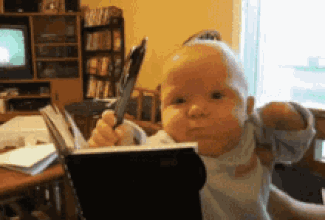
Actually, it was age 5 or 6.
#writblr#writers on tumblr#writing community#writers of#writers on#writers on ao3#writerscommunity#writer#writers#professional writer#writers life#writing life#writing meme#writing memes#writing humor#que#queue
23 notes
·
View notes
Text
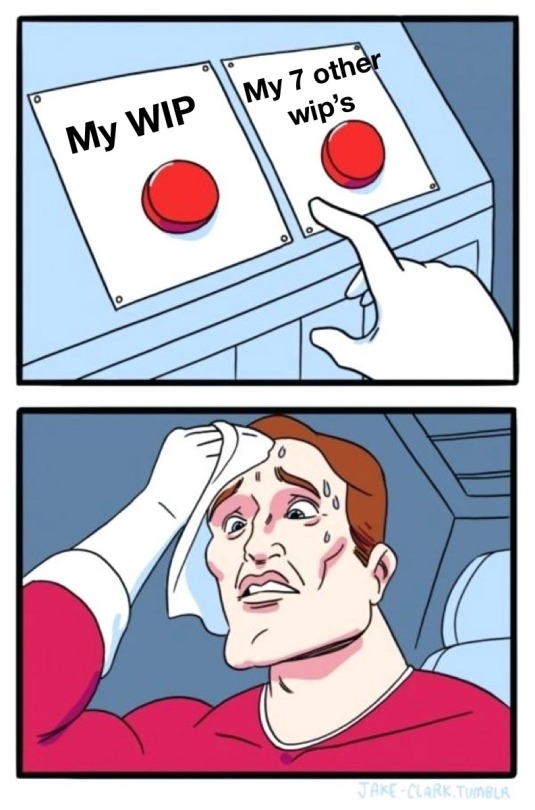
#writing#writeblr#writerblr#writers#writingblr#memes#writing life#fanfic#fanfiction#write#creative writing#fanfic writing
12K notes
·
View notes
Text
Words to Use Instead Of...
Beautiful
stunning
gorgeous
breath-taking
lovely
jaw-dropping
pretty
glowing
dazzling
exquisite
angelic
radiant
ravishing
excellent
ideal
sightly
wonderful
elegant
bewitching
captivating
mesmerizing
enthralling
magnetic
impressive
tasteful
charming
desirable
enchanting
Interesting
stricking
unusual
appealing
absorbing
srresting
gripping
riveting
alluring
amusing
exceptional
fascinating
impressive
provocative
prepossessing
exotic
readable
refreshing
entrancing
exceptional
Good
honest
upright
dutiful
enthical
pure
guiltless
lily-white
reputable
righteous
tractable
obedient
incorrupt
respectable
honorable
inculpable
irreprehensible
praiseworthy
well-behaved
uncorrupted
irreproachable
Awesome
wondrous
amazing
out-of-this-world
phenomenal
remarkable
stunning
fascinating
astounding
awe-inspiring
extraordinary
impressive
incredible
mind-blowing
mind-boggling
miraculous
stupendous
Cute
endeaing
adorable
lovable
sweet
lovely
appealing
engaging
delightful
darling charming
enchanting
attractive
bonny
cutesy
adorbs
dear
twee
Shy
modest
sel-effacing
sheepish
timid
way
reserved
unassured
skittish
chary
coy
hesitant
humble
introverted
unsocial
bashful
awkward
apprehensive
If you like my blog, buy me a coffee☕ and find me on instagram! 📸
#writer#writers#creative writing#writing#writing community#writers of tumblr#creative writers#writing inspiration#writeblr#writing tips#writers corner#writers community#poets and writers#writing advice#writing resources#writers on tumblr#writers and poets#helping writers#writing help#writing tips and tricks#how to write#writing life#let's write#resources for writers#references for writers#writers block#ao3 writer#writerscommunity#female writers#writer things
4K notes
·
View notes
Text
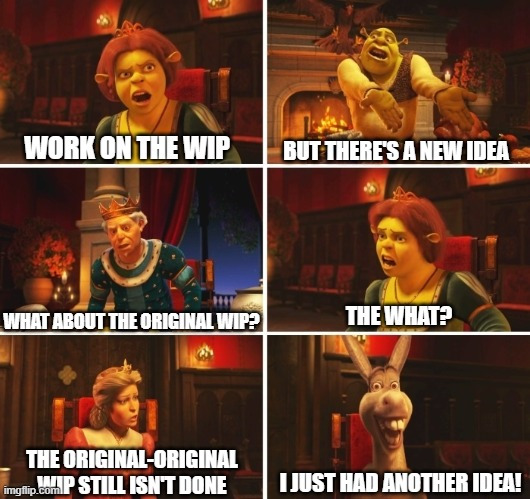
12K notes
·
View notes
Text
Types Of Writer’s Block (And How To Fix Them)
1. High inspiration, low motivation. You have so many ideas to write, but you just don’t have the motivation to actually get them down, and even if you can make yourself start writing it you’ll often find yourself getting distracted or disengaged in favour of imagining everything playing out
Try just bullet pointing the ideas you have instead of writing them properly, especially if you won’t remember it afterwards if you don’t. At least you’ll have the ideas ready to use when you have the motivation later on
2. Low inspiration, high motivation. You’re all prepared, you’re so pumped to write, you open your document aaaaand… three hours later, that cursor is still blinking at the top of a blank page
RIP pantsers but this is where plotting wins out; refer back to your plans and figure out where to go from here. You can also use your bullet points from the last point if this is applicable
3. No inspiration, no motivation. You don’t have any ideas, you don’t feel like writing, all in all everything is just sucky when you think about it
Make a deal with yourself; usually when I’m feeling this way I can tell myself “Okay, just write anyway for ten minutes and after that, if you really want to stop, you can stop” and then once my ten minutes is up I’ve often found my flow. Just remember that, if you still don’t want to keep writing after your ten minutes is up, don’t keep writing anyway and break your deal - it’ll be harder to make deals with yourself in future if your brain knows you don’t honour them
4. Can’t bridge the gap. When you’re stuck on this one sentence/paragraph that you just don’t know how to progress through. Until you figure it out, productivity has slowed to a halt
Mark it up, bullet point what you want to happen here, then move on. A lot of people don’t know how to keep writing after skipping a part because they don’t know exactly what happened to lead up to this moment - but you have a general idea just like you do for everything else you’re writing, and that’s enough. Just keep it generic and know you can go back to edit later, at the same time as when you’re filling in the blank. It’ll give editing you a clear purpose, if nothing else
5. Perfectionism and self-doubt. You don’t think your writing is perfect first time, so you struggle to accept that it’s anything better than a total failure. Whether or not you’re aware of the fact that this is an unrealistic standard makes no difference
Perfection is stagnant. If you write the perfect story, which would require you to turn a good story into something objective rather than subjective, then after that you’d never write again, because nothing will ever meet that standard again. That or you would only ever write the same kind of stories over and over, never growing or developing as a writer. If you’re looking back on your writing and saying “This is so bad, I hate it”, that’s generally a good thing; it means you’ve grown and improved. Maybe your current writing isn’t bad, if just matched your skill level at the time, and since then you’re able to maintain a higher standard since you’ve learned more about your craft as time went on
#writing#writers#writeblr#bookblr#book#writers on tumblr#writerscommunity#writers of tumblr#writer#how to write#on writing#creative writing#writers block#write#writing tips#writers and poets#writblr#female writers#queer writers#writer things#writer stuff#writing is hard#writing advice#writing life#writer problems#writerscreed#writersnetwork#writerblr#writersociety#writerslife
2K notes
·
View notes
Text
How to make your readers Feel emotions for Dummies
(Horror edition!) aka Make your readers Tense.
Anyway, you want to know how to make your readers angry or tense? Well... have I got some useless tips for you!
First, think about what would make you tense?
Usually, you will write about things that you enjoy, therefore your readers will most likely be similar to you, so you should take your own experiences within media and just... steal them
2. Second, Use short sentences, and add onomatopoeia
Nobody likes having to make their brain work faster. And shorter sentences will actually do that. So using it is very helpful.
For example: Nothing in the house made a noise except for something dripping from the ceiling.
Vs
Nothing in the house moved. Not a noise could be heard. Not even the rustle of wind against the walls, or even her own breath. Save for one thing. Drip, drip, drip. Something falling slowly from the rafters overhead. Then, she knew.
See? Better!
3. Next, you should make sure to dance around the word was
Trust me, it just adds that much more oomph
4. Underdescribe the important shit, Overdescribe the unimportant stuff
I don't have an example for this... uh... have a nice day
5. Make your protagonist likable
Please
6. Show your readers early on you won't hesitate to do something shitty
Like kill off a protagonist who didn't actually matter, do something drastic in the story that shows your readers you aren't fucking around
Good Luck and good day!
#creative writing#fiction writing#writing community#writer things#writerscommunity#writers on tumblr#writeblr#writing#writers#writers and poets#write#how to write#writer#writing life#author#writers block#writer stuff#on writing#writing tips#writing advice#writing help
2K notes
·
View notes
Quote
A non-writing writer is a monster courting insanity.
Franz Kafka
#writing#writers#write#writing tips#writing quotes#writing advice#amwriting#writing life#writeblr#quote#quotes
3K notes
·
View notes
Text
Do you ever just look at your characters and go what little weirdos. I love you so much. I’m going to put you through hell, but dang if you didn’t help pull me out of mine. I would do anything for these little spitfires who live in my brain.
#writer problems#writing#writers on tumblr#creative writing#writeblr#writing life#writing memes#writing community#on writing#writer memes#writerscommunity#writers and poets#writerslife#writer things#writers of tumblr
4K notes
·
View notes
Text
Old money names
For girls:
Adelaide - Meaning "noble and kind".
Beatrice - Meaning "bringer of happiness".
Cecilia - Meaning "blind" (associated with the patron saint of music).
Dorothea - Meaning "gift of God".
Eugenia - Meaning "well-born" or "noble".
Florence - Meaning "prosperous" or "flowering".
Georgiana - Meaning "farmer" or "earth worker".
Henrietta - Meaning "ruler of the home".
Isabella - Meaning "pledged to God" or "devoted to God".
Josephine - Meaning "God will add" or "God increases".
Lavinia - Meaning "purity" or "woman of Rome".
Matilda - Meaning "mighty in battle".
Octavia - Meaning "eighth" or "born eighth".
Prudence - Meaning "cautious" or "wise".
Rosalind - Meaning "pretty rose".
Seraphina - Meaning "ardent" or "burning one" (associated with the highest order of angels).
Theodora - Meaning "gift of God".
Victoria - Meaning "victory" or "conqueror".
Winifred - Meaning "blessed peace" or "joy and peace".
Penelope - Meaning "weaver".
For boys:
Archibald - Meaning "genuine and bold".
Bartholomew - Meaning "ploughman".
Cedric - Meaning "bounty" or "generous".
Desmond - Meaning "one from Desmond" or "gracious defender"
Edmund - Meaning "fortunate protector".
Franklin - Meaning "free landowner" .
Gregory - Meaning "watchful" or "vigilant".
Harrison - Meaning "son of Harry".
Ignatius - Meaning "fiery" or "ardent".
Jasper - Meaning "treasurer" or "bringer of treasure".
Leopold - Meaning "brave people" or "bold for the people".
Montague - Meaning "pointed hill" or "sharp peak".
Nathaniel - Meaning "gift of God" or "God has given".
Orville - Meaning "golden city" or "gold town".
Percival - Meaning "pierce the valley" or "piercing one".
Reginald - Meaning "counsel power" or "ruler's advisor".
Sebastian - Meaning "venerable" or "revered".
Theodore - Meaning "gift of God" or "God-given".
Victor - Meaning "victor" or "conqueror".
Winston - Meaning "joyful stone" or "joyful town".
If you want to read more posts about writing, please click here and give me a follow!
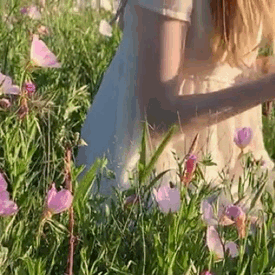
#writerscommunity#writers#writer things#writersociety#on writing#writblr#writers on tumblr#creative writing#writeblr#writing#writings#writers and poets#writer#write#writer problems#writerslife#ao3 writer#writers block#writing life#writing stuff#writing tools#writing community#writing tips#writing advice#writing prompt#writing inspiration#name ideas#old money#name suggestions#names
994 notes
·
View notes
Text
Showing when writing: Emotions [part 1]
Embarrassment
blushing
fidgeting
sweating
hiding their face in their hands
wide eyes
crossing their arms around their body
stutters
stammering
shifting their weight from side to side
exaggerated movements
nervous quirks appear such as picking at their nails, playing with their hair, and rocking on their heels.
avoiding eye contact
glancing or staring at random objects
stiff smiles
scratching the back of their head or neck.
subject changing
forced laughter
Anticipation
big smiles
wetting their lips
energized
constant movement
grinning
can't concentrate
clumsiness
fidgeting
questions
Awe
frozen
wide eyes
slack jaw
harsh or erratic breathing
grinning
staring
Surprise/shock
gasping
open mouth
slack jaw
wide eyes
covering their mouth with their hands
raised eyebrows
frozen
staring
stepping back
stutters or stammers
Triumph
Tilting back head and yelling out
fist pumping in the air
Jumping
Roaring
Whooping
laughter
bright smiles
grinning
Anger/Threatening
Shaking fist
Pointing
crossed arms
glares
frowning
scowling
Stabbing with finger
Slamming fist against something
Veins throbbing
Jutting out their chin
Clenched fist
Clenched jaw
flushed face
Eyebrows lowered or furrowed
squinting
Teeth bared
Wide stance
Tight-lipped smile
Rapid breathing
Sweating
aggressive stance
Flared nostrils
Puffed chest
loud voice
Nervous
lip biting
biting nails
blinking
tears
stepping back
awkward laughter
clumsiness
dry lips
dry mouth
fidgeting
darting eyes
wrapping their arms around themselves
repeatedly folding and unfolding their arms
clutching at themselves, their hip/shoulder/stomach
drawn in/furrowed brows
avoiding eye contact
jittery
pitched voice
no appetite or nervous eating so a bigger appetite
pacing
toying with things
restless
bouncing leg
rubbing at their face
scratching
sweating trembling
Hey there! I'm excited to share with you a new series I've created on Show Don't Tell. In this series, I dive deep into each emotion individually and provide a detailed list of ways to show it through body language, action, setting, and more. The first emotion we're exploring is Envy, and I promise you won't want to miss it! Check it out and let me know what you think. And if there's an emotion you'd like me to cover next, don't hesitate to leave a suggestion in the comments. Can't wait to hear from you!
#writing inspiration#writing#writers on tumblr#creative writing#writers#writeblr#writing advice#writing community#writing exercise#writing tips#writerscommunity#writerslife#writersociety#writer problems#writerblr#aspiring author#author#writers of tumblr#writing life#writers community
10K notes
·
View notes
Text
WHY IS WRITING IS SO FUCKING HARD?
Ten types of fuckery that stop you from writing the thing:
1. Imposter syndrome
You think you're not good enough or everyone else is better than you and you're just winging it AKA ye olde imposter syndrome bullshit. Yeah nah you're fine. No really, you're exactly where you need to be right now, and you'll keep getting better and better so long as you don't stop. Chances are, if you're filled with doubt about your abilities it means you've actually improved to the point where you can really start to understand what makes good writing. It means you know where you wanna end up and goshdarn it you're gonna get there.
Read this: 4 tips to kick imposter syndrome in the face and also genitals
And also this: How to silence the inner critic
2. Fear of rejection and/or failure
Yeah, us too. It fuckin sucks. BUT. Not all rejections are equal. And rejection is a necessary part of the process. Sometimes it takes a rejection to realise that a story isn't ready. Sometimes a rejection is entirely subjective and has ZERO reflection on the quality of your work. But shying away from the very idea of possibly maybe hypothetically getting rejected is only going to hold you back from even trying. And knowing why you got rejected and how to learn from it is one of the most valuable writing skills.
Read this: The different types of rejection (and how to deal with 'em)
Then read this: How to cope with rejection
And also this: Writing lessons from Groundhog Day
3. Not enough planning / too much planning
Leaping into a new story with nothing but a glimmer of an idea is exciting as heck (and can sometimes be a great way to begin) but at some point you're gonna need some sort of outline or plan to keep you on track. HOWEVER. Planning your story to within an inch of its life can also sometimes be a hindrance - leaving you stuck in the hypothetical stage of the process where your story doesn't quite exist yet (and therefore avoiding the prospect of it sucking). The sweet spot is in the middle. Having just enough of a plan to know where tf you're going, but enough freedom and flexibility to let the story lead the way...
Read this: Planning vs pantsing
Then read this: Five plotting techniques
And also this: The perils of overplanning
4. Your WIP just isn't working
Sometimes things just fall flat. Sometimes you work on the same story for yeeeeears and then it just kinda... dies. Sometimes you have the best plans (see above) and the best intentions and things still don't work out. Sometimes it's just time to move on. And sometimes it's not! Sometimes a story can be revived, fixed or changed. Sometimes you just need time. Sometimes YOU'RE the one that's changed and this isn't the story you need to be writing right now. Many variables. Muchly personal. Read the things below for more advice cos this is a big question:
Read this: What to do when your WIP isn't working
And also this: Give it space - how to grow a story in your head
Or how about this? Editing 101
5. You keep deprioritising it
Ah the irony of writing being the thing you love/want to do most of all AND YET the thing you procrastinate over and avoid and shove to the very bottom of your to-do list all the freakin' time. Maybe it's the comodification of art destroying our freedom to create without pressure. Maybe it's late capitalism sucking up all our available time and energy. Maybe it's a lack of self-belief subconsciously telling us our 'little hobby' doesn't really matter. Maybe it's maybelline. Whatever it is, you have the power to reclaim and revalue your writing. To say, "I'm a fucking writer, goddamnit!" and mean it. To ringfence your creative time so nothing and nobody gets to interrupt it. To do that thing you love.
Read this: Prioritise your writing
Read this: How to write in 30 second bursts
6. Shiny Thing Syndrome
You know that feeling when you're just getting stuck into a writing project and then — SQUIRREL! — you get distracted by another, better, more shiny writing project? Or maybe you're deep in the editing phase and your current WIP just isn't feeling very shiny at all and pretty much ANYTHING seems more exciting? Or you simply can't decide which of the many squirrelly writing ideas to actually start? You, fine writerperson, may be suffering from Shiny Thing Syndrome (STS). But fear not! There are a few ways to combat it, depending on the cause, and most of them involve embracing the squirrel-brain and injecting a bit of fun into your writing, like so:
Read this: Shiny thing syndrome - a writer's malady
Aaaand read this: Get excited about your writing again
And also this: Write like a kid
7. Perfectionism/self-sabotage
Look. Writing is scary as shit. What if someone READS it? What if they don't like it? What if they see into your soul and gain a deeper understanding of you through your words? Writing your truth, being vulnerable, smearing your heart juice all over the page? No thank you. But also, that's where the good shit is, so actually yes please. Just make sure you smear responsibly. And rest assured, even the most 'successful' and experienced writers ALSO feel like this sometimes, so you're in good company. It's just part of the art, bruh.
Read this: Why writing is scary (and why that's a good thing)
Read this: Beginning a story - what stops us starting?
And also this: Get out of your own way
8. The dreaded blank page
Oh godddd the blank page. It should be an exciting palimseset of possibility but is somehow also the most terrifying thing known to humankind. You wanna write something but where to start? HOW to start? You type that first line and immediately delete it. You watch the cursor blinking at you—taunting you—until you just give up and shut your laptop again. It's probably tied up with a bunch of things we've already covered so far: perfectionism, imposter syndrome, fear of failure, maybe a lack of planning or faith in your story or whatever. But it doesn't have to be this way. A blank page IS exciting and full of possibility. We just have to get over ourselves and learn to embrace the unknown...
Read this: Don't fear the blank page
And also this: The moaning method
9. Not enough time/energy/motivation/gnuuuughh
Dude, same x 1000. But you don't have to get up at 5am, do hot yoga, drink a kale smoothie and write a thousand words before sunrise to be a Proper Writer. You don't even have to write every day. But what you can do is hack your writing brain and figure out when, where, how, and why you write most effectively. Then tweak your schedule, your habits, and your attitude to ensure you're making the most of your time. Productivity is a big ol' lie but finding the secret to getting in your own personal writing zone is actual MAGIC.
Read this: Maximise your writing time
And also this: Get in the writing zone
And also unto this: The Writers' HQ Guide to Productivity
10. You're just fucken stuck
Got the writing morbs? In need of some literary sudafed? Stuck as a pig in a poke? Writing is a whole puzzle of a process—and to be honest that's what makes it so fun and exciting and addictive, because your writing brain is hardwired to both create AND solve the wordy puzzles within your story. Sometimes the answer is time. Sometimes it's a second opinion or a fresh eye. Sometimes a totally different approach or just a hefty kick up the bum. But whatever the problem, there IS a solution. You just gotta keep going and trust that you'll find it...
Read this: Troubleshoot your writing - why are you stuck?
And also this: Break through the writing blockage
And also also this: Write yourself into a pit (and then dig your way out again)
~~~~~~~~~~~~~~~
Alright, that's it for today. Now go write, you flithy animals.
(And if we missed anything, stick a question in our ask box or check out the rest of our shit here)
#writing#writing advice#writers of tumblr#writeblr#writing community#writers community#writing life#creative writing#national novel writing month#nanowrimo#nanowrimo 2022#imposter syndrome#perfectionism#writer's block#writers block#writer things#procrastination#productivity#writer problems#blank page#the blank page#WIP#pantser#editing#plotting
8K notes
·
View notes
Text
say what u will about wattpad but one thing those bitches got right was the ability to annotate and comment as you read the chapter and see what other people thought about it like that shit was genius
#wattpad#ao3#not just as a reader but as a writer too!!!#i wanna know EXACTLY where u lost your mind#I wanna know EXACTLY what went through your head as you read this#and u can only get that through annotations man#it's my favorite part of reading too#writing life
6K notes
·
View notes
Text
Scenes: The Basics🏕️
The Four Chords of a Scene
The scene is a fictional unit that comprises of the following:
Two major chords: Action + Reaction
Two minor chords: Setup + Deepening (be kept to minimum)
A "beat" is a smaller unit within a scene. You can think of this as a paragraph.
1. Action
Action happens when a character does something in order to attain his main objective. In a given scene, he has a scene purpose.
This can include: yelling, shutting the door, fighting, crying, pulling someone back, hugging....basically when your character does something or the other to alleviate the pain or take part in conflict.
2. Reaction
A reaction scene is how a Lead character feels emotionally when something happens to him.
A literary novel may feel like a lot of reaction scens because they are generally more about the interior life of a character.
Reaction is often done in "beats" where the character moves from (1) questioning himself, then (2) providing self-justification to (3) being angry beyond reason, etc.
You can put a "reaction beat" (not a whole scene!) in the middle of action so we know how the character is feeling.
3. Setup
These are things that must occur in order for subsequent scenes to make sense.
All novels need a certain amount of setup to show who the Lead is, what he does and why.
Build in some problem, however slight, to the setup scene. It can be just an alarm ringing or door suddenly opening - something that brings immediacy.
4. Deepening
Deepening is to novel as spice is to food.
This is what you mix to deepen the reader's understanding of character or setting. Make it fresh, drop it in strategically.
Deepening chords are interesting/shocking/fun and kind of in line with the overall theme, but they don't serve a particular purpose.
If you like my blog, buy me a coffee☕ and find me on instagram! 📸
#writers and poets#writing#creative writing#poets and writers#writers on tumblr#helping writers#creative writers#let's write#resources for writers#writeblr#writer#writers#writing community#writers of tumblr#writing inspiration#writing tips#writers corner#writers community#writing advice#writing resources#writing help#writing tips and tricks#how to write#writing life#references for writers
2K notes
·
View notes
